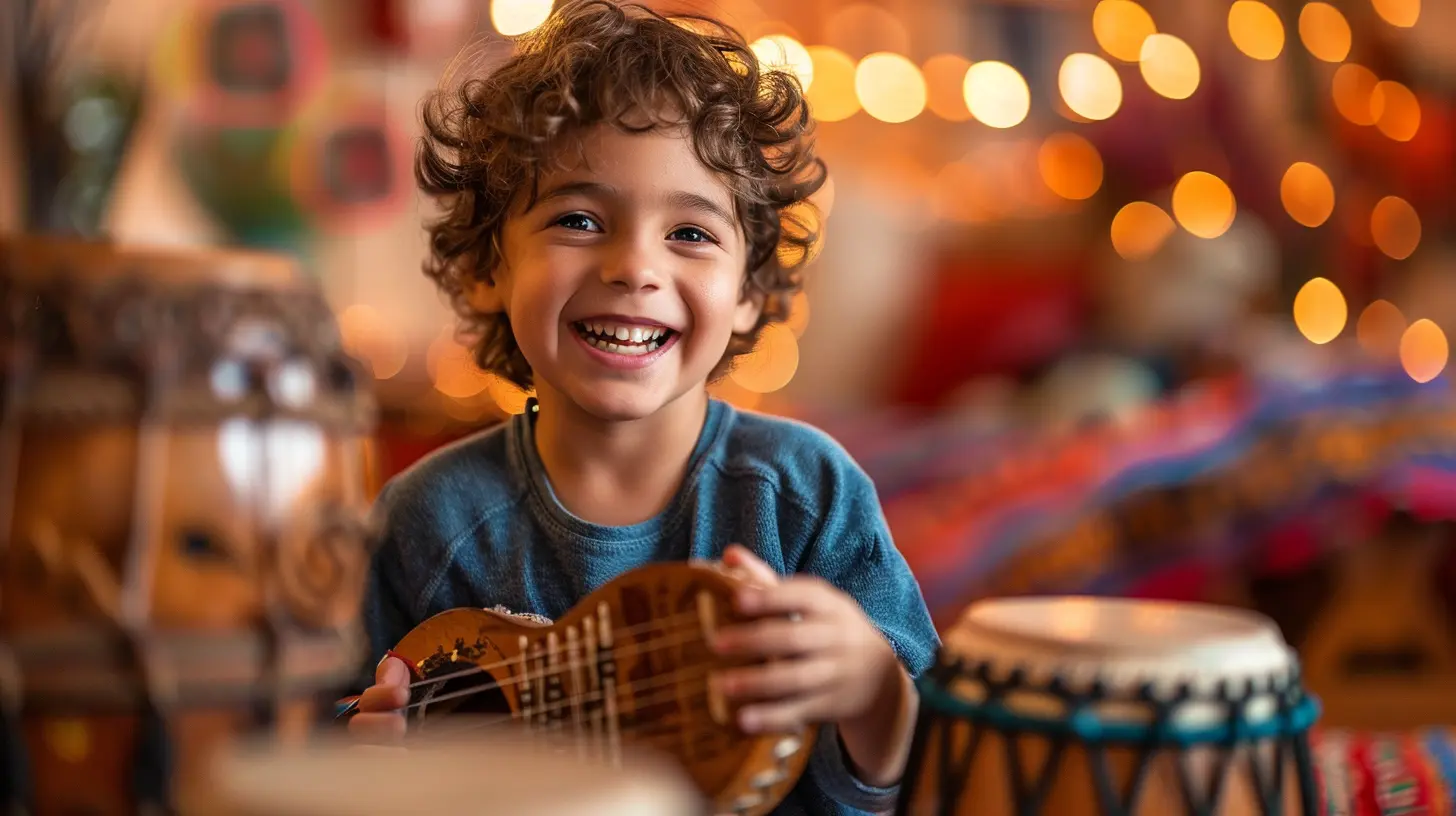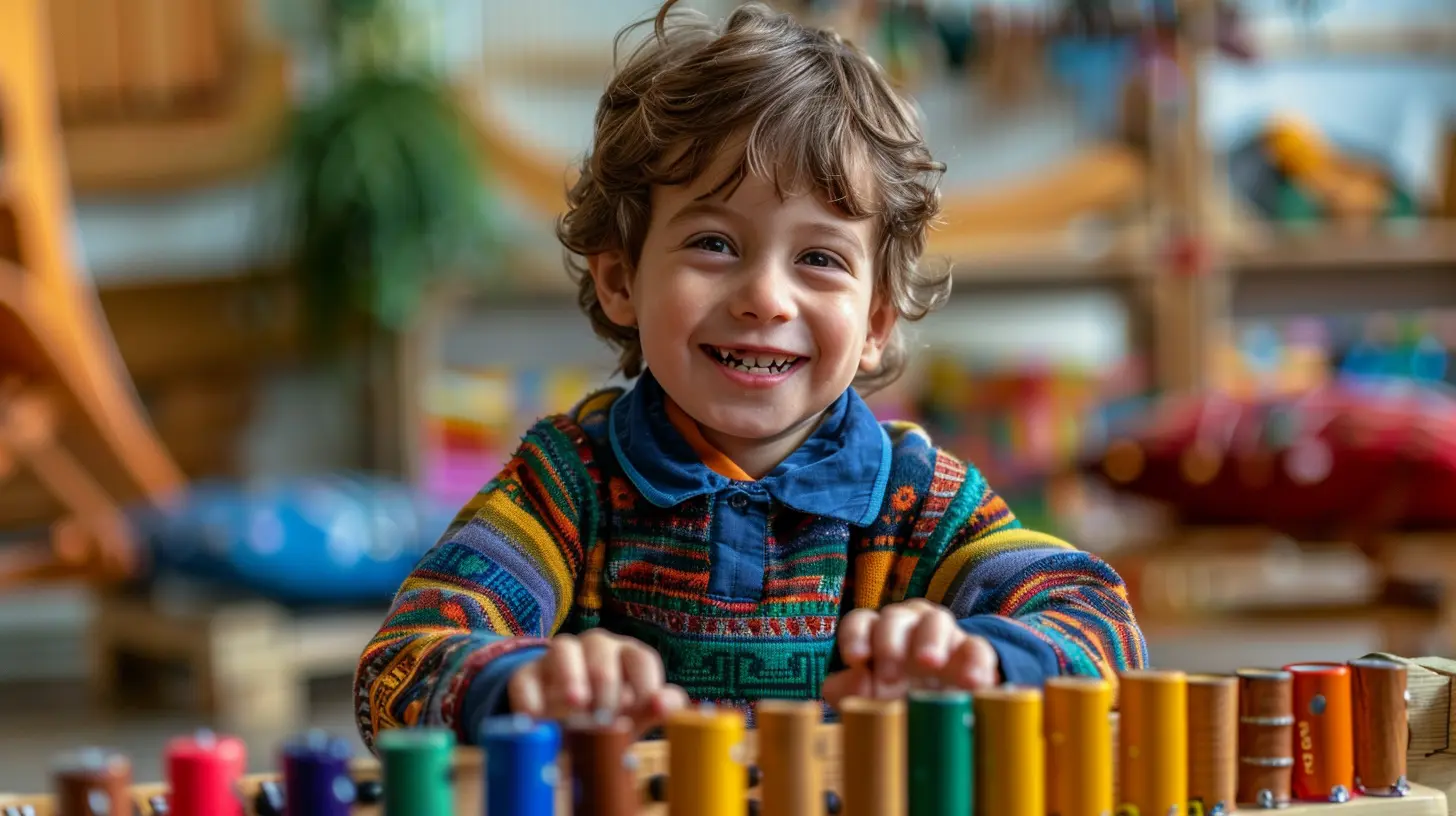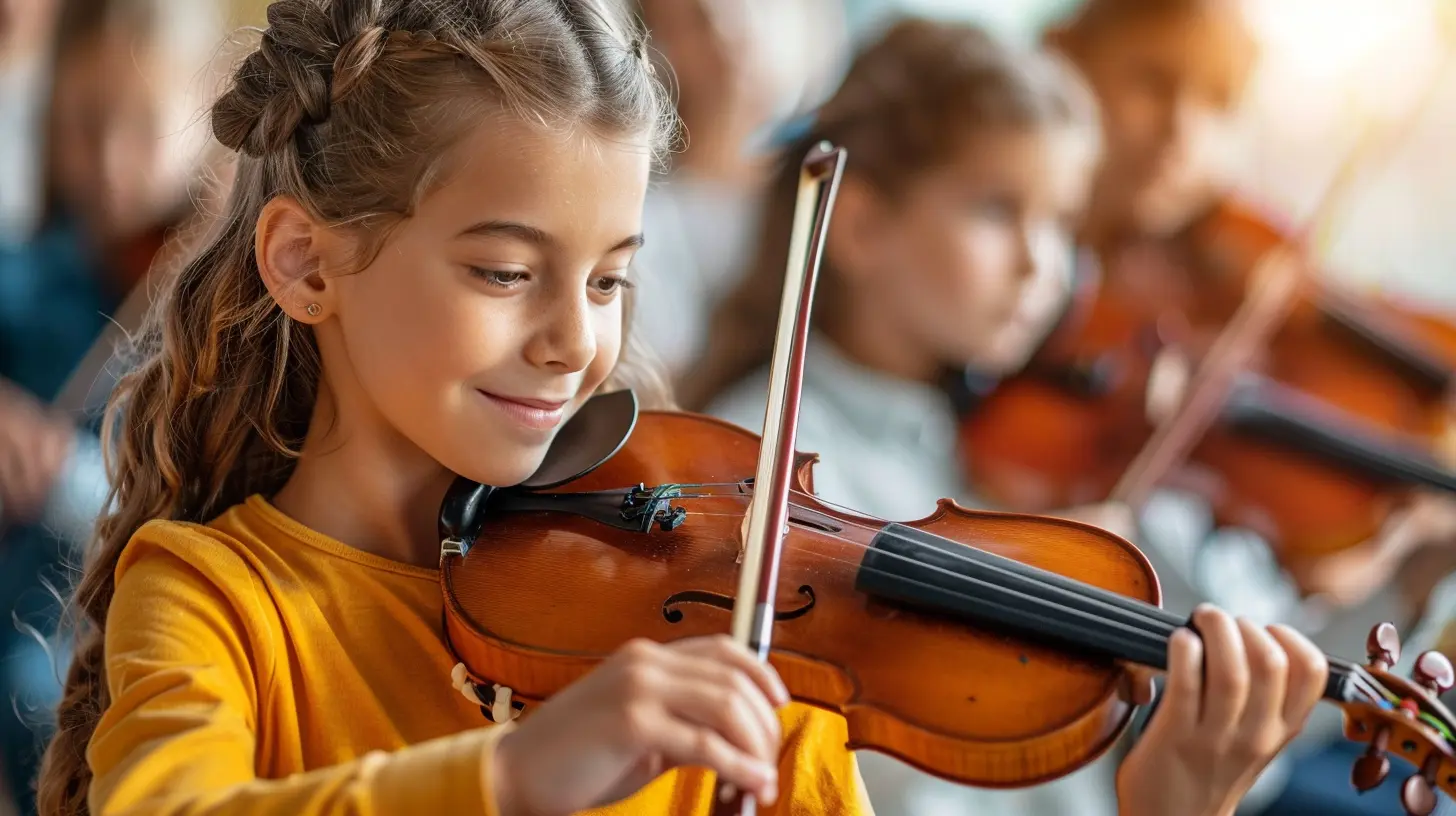The Benefits of Learning an Instrument for Early Childhood
2 May 2025
Music is a magical language that speaks to the soul. For children, learning an instrument isn't just about playing notes—it's a powerful tool that shapes their minds, emotions, and even their social skills. Ever wondered why so many parents encourage their little ones to pick up a musical instrument at an early age? Well, it's because music education offers a world of benefits beyond just entertainment.
In this article, we'll break down why introducing your child to an instrument early on can be one of the best decisions you ever make. So, grab a cup of coffee, sit back, and let’s dive into the wonderful world of childhood music learning!

1. Boosts Brain Development
Children’s brains are like sponges—they absorb everything around them, and music acts like a supercharger. Studies have shown that learning to play an instrument strengthens neural connections, improving cognitive functions such as memory, problem-solving, and attention span.Music and the Brain
When a child plays music, multiple parts of the brain are engaged simultaneously. Think of it like a full-body workout, but for the brain! The left hemisphere, responsible for logic and reasoning, is activated when they learn notes, rhythm, and timing. At the same time, the right hemisphere, which handles creativity and emotions, comes alive when they experiment with melodies and improvisation.Over time, this mental workout enhances overall brain function, helping kids perform better in subjects like math, reading, and science.

2. Enhances Language and Communication Skills
Ever noticed how young kids love to hum along to songs before they can even form sentences? That’s because music and language are closely linked. Learning an instrument helps children develop phonetic awareness, which is essential for reading and speaking skills.Developing Listening Skills
Playing an instrument requires a child to listen carefully to sounds, pitch, and rhythm. This improves their auditory processing abilities, making them better at distinguishing different tones and words in conversations. As a result, children who study music often develop stronger communication skills and a greater ability to express themselves.
3. Encourages Emotional Expression and Creativity
Music is a form of self-expression, and for children, it provides a safe space to explore their emotions. Whether it's the joyful sound of a ukulele or the deep tones of a cello, learning an instrument allows kids to convey their feelings through music.Music as an Emotional Outlet
Young children often struggle with identifying and managing emotions. Playing an instrument gives them an outlet to process their feelings in a healthy way. Feeling happy? They might tap out an upbeat tune on the piano. Feeling sad? A slow melody on the violin could help them express their emotions.Encouraging musical creativity also fosters imagination. Kids who learn an instrument are more likely to think outside the box and come up with unique solutions to problems—an essential skill in any aspect of life.

4. Builds Discipline and Patience
Let’s be honest—learning to play an instrument isn’t always easy. It takes time, practice, and a whole lot of patience. And for kids, this is a crucial life lesson.The Value of Practice
When children commit to learning an instrument, they understand the importance of persistence. They learn that improvement comes with effort and that mistakes are part of the journey. These lessons in discipline and patience carry over into their academic studies and personal development.Think about it—how often do we, as adults, give up on something simply because it seems too hard? Teaching kids to embrace challenges early on helps them develop resilience, a quality that will benefit them for a lifetime.
5. Improves Social Skills and Teamwork
Music has a beautiful way of bringing people together. Whether it’s playing in a school band, joining an orchestra, or simply jamming with friends, learning an instrument encourages social interaction.Working Together in Harmony
Children who learn music often participate in group activities where teamwork is essential. They must listen to others, play in sync, and follow directions—all of which improve their ability to collaborate and work as a team.These social experiences help kids develop confidence, empathy, and a sense of belonging. Plus, making music with others is just plain fun!
6. Strengthens Fine Motor Skills and Coordination
Mastering an instrument takes more than just mental effort—it’s also a physical activity that enhances motor skills and hand-eye coordination.Precision and Control
Playing the piano, for example, requires both hands to work independently while pressing keys with precision. String instruments, such as the violin or guitar, demand finger dexterity and control. Over time, this improves a child’s overall coordination, making everyday tasks like writing, drawing, and even sports easier.For younger children, these fine motor skill improvements contribute to their overall physical development, preparing them for more complex movements as they grow.
7. Boosts Confidence and Self-Esteem
There’s nothing quite like the sense of accomplishment that comes from learning a new song or mastering a difficult piece. For kids, these small victories build confidence and self-esteem.Performing in Front of Others
Whether it's a small family performance or a school recital, playing an instrument in front of an audience helps children overcome stage fright and build self-assurance. The encouragement they receive from others reinforces their belief in their abilities, and that confidence spills over into other areas of their lives.A child who feels proud of their musical progress is more likely to tackle challenges head-on, believing in their own capacity to succeed.
8. Provides a Lifelong Skill and Passion
One of the greatest gifts of music is that it stays with you for life. Unlike other childhood hobbies that might fade away with time, learning an instrument is a skill that can be enjoyed well into adulthood.A Lifelong Source of Joy
As children grow older, playing an instrument can serve as a creative outlet, a stress reliever, or even a career path. Whether they choose to pursue music professionally or simply play for enjoyment, the foundation built in early childhood will always be valuable.Encouraging a love for music at a young age opens the door to a lifetime of artistic and personal growth.
Final Thoughts
Introducing children to the world of music early on is one of the best investments in their future. Learning an instrument not only stimulates brain development but also fosters creativity, discipline, confidence, and social skills.More importantly, music brings joy. It allows kids to express themselves, connect with others, and build memories that last a lifetime. So, if you've been considering signing your little one up for music lessons, why not give it a try? Who knows—they might just discover a lifelong passion that enriches their life in ways you never imagined!
all images in this post were generated using AI tools
Category:
Music EducationAuthor:

Eva Barker
Discussion
rate this article
6 comments
Esme Moses
Great insights! Learning an instrument fosters creativity and enhances cognitive skills in early childhood.
May 17, 2025 at 3:08 AM

Eva Barker
Thank you! I’m glad you found the insights valuable—music truly plays a vital role in enhancing creativity and cognitive development in young children.
Selah McVicar
Thank you for this insightful article! Your points on the cognitive and emotional benefits of learning an instrument in early childhood highlight the importance of music education in fostering well-rounded development for children.
May 12, 2025 at 8:58 PM

Eva Barker
Thank you for your thoughtful feedback! I'm glad you found the article valuable in emphasizing the role of music education in child development.
Dakota McMillan
Learning an instrument is a joyful journey that sparks creativity and builds lifelong skills in kids!
May 8, 2025 at 4:55 AM

Eva Barker
Absolutely! Learning an instrument not only fosters creativity but also instills essential life skills that benefit children for years to come.
Reina Warner
Learning an instrument in early childhood is vital for holistic development. It enhances cognitive skills, fosters creativity, and builds discipline. Introduce music early on to unlock potential and lay a strong foundation for lifelong learning and personal growth. Invest in their musical journey!
May 6, 2025 at 5:04 AM

Eva Barker
Thank you for your insightful comment! I completely agree—early musical exposure is crucial for fostering essential skills and personal growth in children. Your emphasis on the long-term benefits really highlights the importance of investing in their musical journey!
Selena McAdams
Enhances cognitive skills and creativity.
May 3, 2025 at 1:07 PM

Eva Barker
Absolutely! Learning an instrument fosters critical thinking and boosts creativity, providing a strong foundation for overall cognitive development in early childhood.
Benjamin McGlynn
Learning an instrument in early childhood fosters cognitive development, enhances emotional expression, and promotes social skills, laying a strong foundation for lifelong learning.
May 2, 2025 at 8:10 PM

Eva Barker
Thank you for your insightful comment! I completely agree that learning an instrument in early childhood significantly contributes to cognitive, emotional, and social development. It truly sets the stage for lifelong learning and growth.
MORE POSTS

Enhancing Student Collaboration in a Flipped Classroom Setting

Fostering Entrepreneurial Mindsets Through Project-Based Learning

How to Cultivate a Growth Mindset in a Flipped Classroom

How to Foster Student Accountability in a Flipped Classroom

"The Role of Emotional Intelligence in Inclusive Education